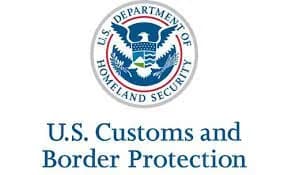
What is the US Customs & Border Protection?
Customs and Border Protection (CBP) is a federal law enforcement agency tasked with regulating and facilitating international commerce, collecting import duties, and enforcing U.S. regulations on trade, customs, and immigration. With over 60,000 employees, CBP is one of the largest law enforcement agencies in the United States.
It was established in 2003 through the consolidation of personnel from the customs, immigration, border patrol, and agricultural inspection services, which previously existed as separate entities under various government departments.
This essential agency is charged with maintaining the nation’s border security, facilitating legal trade and travel, and preventing the infiltration of illegal activities.
The Purpose of U.S. Customs and Border Protection
U.S. Customs and Border Protection is fundamentally motivated by three missions:
- Border Protection – CBP is in the vanguard of efforts to prevent the entry of unauthorised persons and contraband into the United States. This requires vigilant surveillance of land and sea borders, sophisticated surveillance technology, and coordination with other law enforcement agencies to apprehend individuals attempting illegal border crossings.
- Commerce Facilitation – The agency plays a crucial function in facilitating the legal flow of trade. CBP is responsible for enforcing trade laws and regulations, collecting customs duties, and ensuring compliance with safety and quality standards for imported products. This promotes economic growth and stability by facilitating international trade.
- Travel Security – CBP is dedicated to assuring the safety and security of those entering the United States. This entails conducting rigorous inspections at ports of entry, confirming individuals’ eligibility to access the country, and intercepting potential threats before they can cause damage to American soil.
Essential Duties and Responsibilities
Border Protection
CBP employs a multifaceted strategy for border security. This includes deploying Border Patrol agents who conduct patrols between official ports of entry. These agents intercept individuals attempting to cross the border illegally, preventing human smuggling and trafficking. In addition, CBP utilises cutting-edge technology, such as drones and remote sensors, to monitor expansive expanses of the border.
Operations at Entry Points
The agency is responsible for administering and operating the official U.S. entry points through which travellers and their belongings legally enter the country. At these ports, CBP officers conduct inspections, process travellers, and evaluate the admissibility of products. Their responsibilities include verifying passports and ensuring that imported goods comply with regulations.
Trade Observation
CBP serves a crucial role in international trade regulation. It enforces trade laws and agreements, collects tariffs and duties, and prevents the entry of counterfeit or low-quality products. This protects domestic industries and ensures that products reaching American consumers adhere to predetermined standards.
Immigration Controls
As part of its responsibility to enforce immigration laws, CBP conducts entry screenings on those seeking to enter the United States. This includes determining the admissibility of visitors, immigrants, and refugees and apprehending those who attempt to enter the country illegally. The work of CBP is essential to preserving the integrity of the immigration system.
Collaborative Technologies
Collaboration is essential to the viability of the CBP. To enhance border security, the agency collaborates closely with other federal, state, local, tribal, and international partners. This cooperation encompasses the exchange of intelligence, joint operations, and coordinated efforts to combat transnational threats.
Technological Progress
CBP embraces innovation as a means of enhancing its capabilities. Technology facilitates the monitoring and interception of illegal activities, as well as the improvement of inspection procedures and data analysis for informed decision-making. CBP uses technology, such as biometric identification systems and sophisticated scanning equipment, to stay ahead of evolving threats.
The Prospects for CBP
As the world evolves, so do the obstacles border protection agencies confront. CBP continues to adapt and develop in response to emergent threats while facilitating legal trade and travel. Incorporating AI, big data, and predictive analytics is anticipated to improve CBP’s ability to identify potential risks and streamline operations.
In an ever-changing global security environment, U.S. Customs and Border Protection (CBP) adapts its strategies to meet new challenges. CBP’s function extends beyond physical borders to protect vital digital infrastructure via cybersecurity.
The agency’s outreach also includes initiatives to educate the public about border security and immigration laws. As CBP navigates the complexities of modern security, its commitment to upholding the rule of law, assuring trade fairness, and preserving traveller safety remains unwavering. CBP is poised to shape a secure and productive future for the United States by embracing innovation and collaboration.
To conclude
Customs and Border Protection of the United States acts as a keeper, vigilantly protecting the nation’s borders. With a steadfast commitment to border security, trade facilitation, and travel safety, CBP is vital to the security and prosperity of the United States. Through collaboration, cutting-edge technology, and unwavering commitment to its mission, CBP continues to be a pillar of national security.
Did this advice help?
Is there anything wrong with this page?
If so let us know!